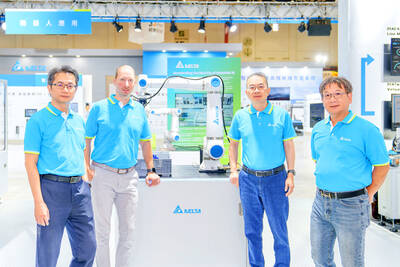Security experts are warning PC users to be on guard against viruses masquerading as Valentine's Day messages.
"Computer users should keep a wary eye on any romantic messages received by e-mail, as many of them could contain malicious code," US security firm PandaLabs said after detecting an increase in a worm it dubbed Nurech.A.
The worm hides in e-mails with subjects like: "Together You and I," "Til the End of Time Heart of Mine." People who open an attached file such as postcard.exe can infect their computers.
Security firm Symantec said it had detected "large-scale spamming" of e-mails including a Trojan horse, a program that contains or installs malicious software.
Symantec said the malware was a new version of Trojan.Peacomm or the "Storm Trojan."
"With Valentine's Day approaching, this time around the authors are attempting to tug on the heartstrings of unsuspecting users with romantic subject lines such as `My Heart belongs to you,'" Symantec's Orla Cox said.
"The Trojan is much the same as we've seen before, the only difference being that the authors have used a modified packer in an effort to evade detection by antivirus vendors," Cox said.
"As a general rule, don't open any suspicious e-mail, regardless of what is says it contains," said Luis Corrons, technical director of PandaLabs.
"Instead of going on instincts, let a security solution decide whether it's safe to open it or not," he said, urging users to scan any suspicious messages with an antivirus program.
Corrons said events like Valentine's Day and Christmas are often exploited by cyber-criminals to try and spread their creations by disguising infected e-mails as e-greeting cards.
This use of "social engineering" was used in the LoveLetter virus, which caused one of the biggest epidemics in computer history.

SETBACK: Apple’s India iPhone push has been disrupted after Foxconn recalled hundreds of Chinese engineers, amid Beijing’s attempts to curb tech transfers Apple Inc assembly partner Hon Hai Precision Industry Co (鴻海精密), also known internationally as Foxconn Technology Group (富士康科技集團), has recalled about 300 Chinese engineers from a factory in India, the latest setback for the iPhone maker’s push to rapidly expand in the country. The extraction of Chinese workers from the factory of Yuzhan Technology (India) Private Ltd, a Hon Hai component unit, in southern Tamil Nadu state, is the second such move in a few months. The company has started flying in Taiwanese engineers to replace staff leaving, people familiar with the matter said, asking not to be named, as the

The prices of gasoline and diesel at domestic fuel stations are to rise NT$0.1 and NT$0.4 per liter this week respectively, after international crude oil prices rose last week, CPC Corp, Taiwan (台灣中油) and Formosa Petrochemical Corp (台塑石化) announced yesterday. Effective today, gasoline prices at CPC and Formosa stations are to rise to NT$27.3, NT$28.8 and NT$30.8 per liter for 92, 95 and 98-octane unleaded gasoline respectively, the companies said in separate statements. The price of premium diesel is to rise to NT$26.2 per liter at CPC stations and NT$26 at Formosa pumps, they said. The announcements came after international crude oil prices

STABLE DEMAND: Delta supplies US clients in the aerospace, defense and machinery segments, and expects second-half sales to be similar to the first half Delta Electronics Inc (台達電) expects its US automation business to remain steady in the second half, with no signs of weakening client demand. With demand from US clients remaining solid, its performance in the second half is expected to be similar to that of the first half, Andy Liu (劉佳容), general manager of the company’s industrial automation business group, said on the sidelines of the Taiwan Automation Intelligence and Robot Show in Taipei on Wednesday. The company earlier reported that revenue from its automation business grew 7 percent year-on-year to NT$27.22 billion (US$889.98 million) in the first half, accounting for 11 percent

A German company is putting used electric vehicle batteries to new use by stacking them into fridge-size units that homes and businesses can use to store their excess solar and wind energy. This week, the company Voltfang — which means “catching volts” — opened its first industrial site in Aachen, Germany, near the Belgian and Dutch borders. With about 100 staff, Voltfang says it is the biggest facility of its kind in Europe in the budding sector of refurbishing lithium-ion batteries. Its CEO David Oudsandji hopes it would help Europe’s biggest economy ween itself off fossil fuels and increasingly rely on climate-friendly renewables. While